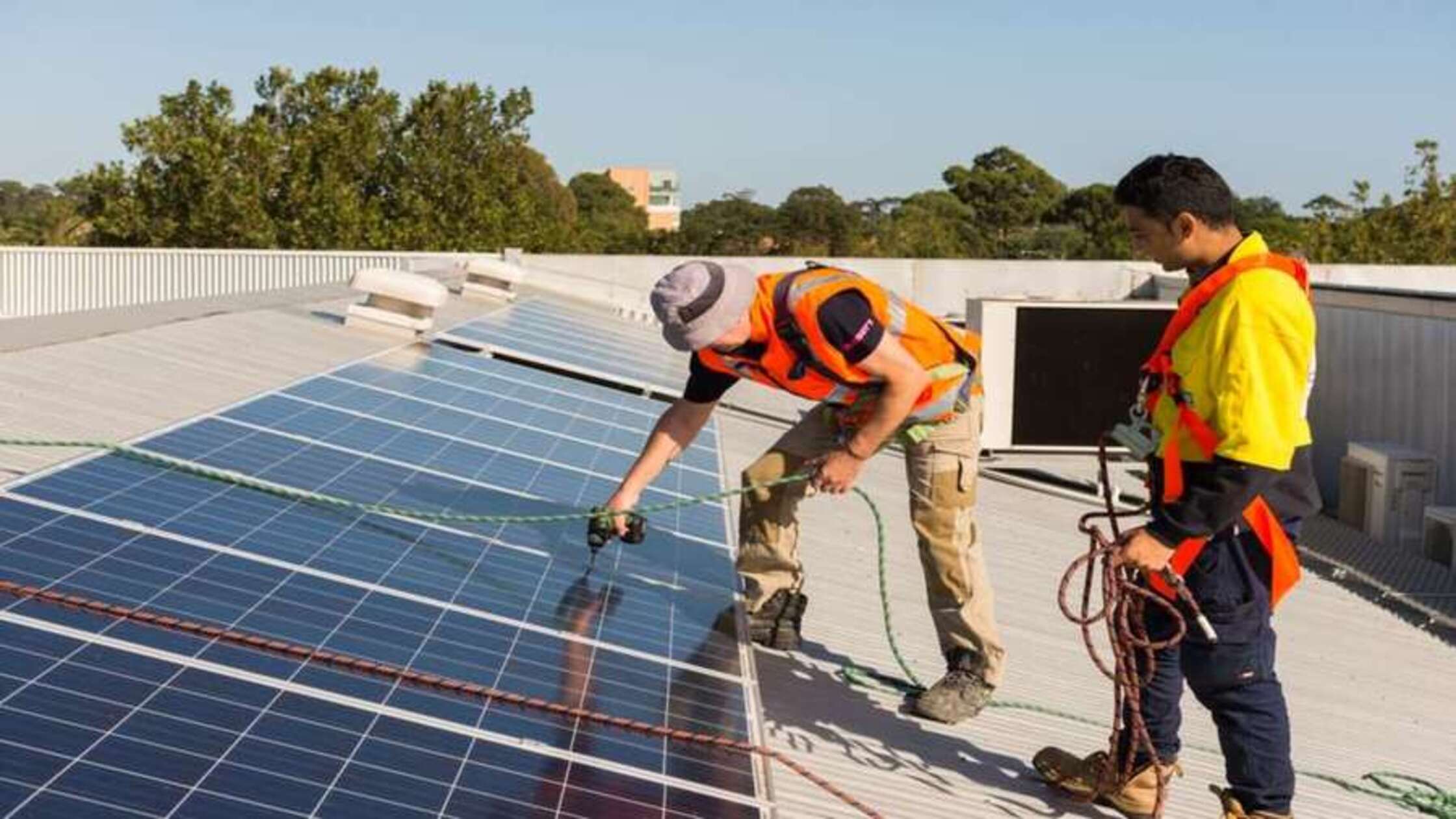Selecting the right solar installer in Singapore is crucial for maximizing the benefits of your solar investment. With the right questions, you can ensure you’re partnering with a provider who meets your needs and delivers high-quality service. Here’s a comprehensive guide to help you make an informed decision.
1. What types of solar panels do you offer?
Detail: Solar panels come in various types, including monocrystalline, polycrystalline, and thin-film. Monocrystalline panels are known for their high efficiency and sleek appearance, making them ideal for residential properties with limited roof space. Polycrystalline panels are generally less expensive but slightly less efficient. Thin-film panels are flexible and lightweight but typically have lower efficiency and a shorter lifespan.
Tip: Choose panels that offer high efficiency (23% or more) and durability. Look for panels with advanced technologies that perform well under Singapore’s high humidity and tropical heat. Leading providers offer panels with superior heat tolerance and efficiency, ensuring long-term performance and energy savings.
2. What local incentives and rebates are available?
Detail: Singapore offers several incentives for solar energy, including NER for solar installations on commercial and residential buildings. The Green Building Masterplan also offers various grants and subsidies for green building initiatives. Understanding these incentives can significantly reduce your initial costs.
Tip: Work with an installer who is knowledgeable about local incentives and can assist you in applying for them. They should provide guidance on maximizing savings through government programs and rebates, ensuring you take full advantage of available financial benefits.
3. How long have you been in business in Singapore?
Detail: Experience in the solar industry can be a strong indicator of reliability. Installers with a long-standing presence in Singapore are likely familiar with local regulations, climate conditions, and building codes. This experience often translates to higher quality installations and better customer service.
Tip: Opt for a provider with a proven track record in Singapore. An established installer will have a portfolio of completed projects, customer testimonials, and a reputation for delivering successful installations. This ensures that you’re working with a reputable company that understands local market dynamics.
4. Do you offer options to purchase or lease solar panels?
Detail: Purchasing solar panels outright involves a significant initial investment but offers long-term savings. Leasing options typically require lower upfront costs and include maintenance, but you’ll pay monthly fees and may not own the system. Both options have their pros and cons depending on your financial situation and energy goals.
Tip: Choose an installer who offers flexible purchasing and leasing options. This flexibility allows you to select the best financing arrangement based on your budget and energy needs. Look for a provider who can help you evaluate the total cost of ownership versus leasing to make an informed decision.
5. What financing options are available?
Detail: Financing options can include solar loans, leases, and power purchase agreements (PPAs). Solar loans allow you to pay for your system over time, while leases and PPAs offer no upfront costs but involve monthly payments or a rate per kilowatt-hour of energy produced.
Tip: Ensure the installer provides a range of financing solutions. A comprehensive provider will offer competitive loan rates, flexible lease terms, and transparent PPAs. This variety allows you to choose a financing option that aligns with your financial goals and maximizes your return on investment.
6. What does your warranty cover?
Detail: Warranties typically cover the solar panels, inverter, and installation. A standard warranty for solar panels is 10-12 years for product defects and 25 years for performance. Inverters usually have a 5-10 year warranty. Additionally, installation warranties cover labor and workmanship.
Tip: Look for a provider that offers robust warranties, including long-term coverage for panels and inverters, as well as comprehensive installation warranties. This ensures that you’re protected against defects and performance issues, providing peace of mind and long-term reliability.
7. How do you handle system malfunctions or repairs?
Detail: System malfunctions can arise due to various factors, including equipment failure or installation issues. A reliable installer should have a clear process for addressing these problems, including response times for service requests and procedures for repairs or replacements.
Tip: Choose an installer with a proven track record for responsive customer service and efficient repairs. They should offer a clear protocol for handling malfunctions and provide contact information for support. A leading provider will have dedicated support teams to address issues promptly and minimize downtime.
8. Can the system be expanded in the future?
Detail: As your energy needs grow, you may want to expand your solar system. Ensure that the installer designs a system that allows for easy expansion. This includes considering roof space, additional panel capacity, and the ability to integrate with future technologies.
Tip: Select a provider who offers scalable solutions and can design a system with future expansion in mind. This flexibility ensures that you can increase your system’s capacity as needed without significant additional costs or major system overhauls.
9. What is the expected installation timeline?
Detail: Installation timelines can vary based on project size, complexity, and regulatory approvals. A detailed timeline should include all stages of the installation process, from initial consultation to system activation.
Tip: Opt for an installer with a transparent and realistic installation timeline. They should provide a clear schedule with milestones and estimated completion dates. This helps you plan accordingly and ensures that your system is installed in a timely manner.
10. Do you have a customer referral program?
Detail: Referral programs can be a sign of customer satisfaction and trust. A provider with a referral program often rewards existing customers for recommending their services, which can indicate positive experiences and high-quality service.
Tip: Choose an installer with an active referral program, which suggests strong customer satisfaction and trust. Referral rewards can also offer additional savings or benefits, enhancing the overall value of your solar investment.
Bonus Tips:
1. What are the projected savings and payback period?
Detail: Accurate projections of savings and payback period help you understand the financial benefits of your solar system. This includes estimated reductions in energy bills and the time required to recoup your initial investment.
Tip: Look for a provider who offers detailed projections based on local energy rates and system performance. They should provide a comprehensive analysis of your expected savings and payback period, helping you make an informed decision.
2. How do I monitor my solar panel performance?
Detail: Monitoring tools allow you to track your solar system’s performance in real-time. Advanced systems include apps or online platforms that provide data on energy production, consumption, and savings.
Tip: Choose an installer who offers sophisticated monitoring solutions with user-friendly interfaces. Real-time monitoring helps you track performance, identify issues quickly, and optimize your energy usage for maximum savings.
3. What happens at the end of my system’s lifespan?
Detail: Solar panels have a typical lifespan of 25-30 years. Understanding the options for upgrading or decommissioning old panels is crucial for future planning. This includes recycling programs and potential upgrades to newer technologies.
Tip: Ensure the installer provides a clear plan for managing the end of your system’s lifespan. This should include options for upgrading, recycling old panels, and transitioning to new technologies, minimizing environmental impact and ensuring continued efficiency.
4. Are there any special discounts available?
Detail: Special discounts or promotions can reduce the overall cost of your solar installation. These may include seasonal offers, referral bonuses, or discounts for specific customer groups.
Tip: Inquire about any available discounts or promotions. A reputable provider will offer transparent information on current offers and how they can enhance the value of your solar investment.
5. What additional products or services do you offer?
Detail: Additional products, such as solar batteries or home energy management systems, can complement your solar installation. These products enhance your energy efficiency and provide additional benefits like energy storage and smart home integration.
Tip: Choose a provider who offers a range of complementary products and services. Integrated solutions, such as energy storage and management systems, can further enhance your solar experience and optimize energy usage.
By asking these detailed questions and considering these tips, you can make an informed choice when selecting a solar installer in Singapore. Focusing on these aspects ensures that you partner with a provider who offers high-quality service, advanced technology, and comprehensive support, making your solar investment a successful and rewarding experience.
Try Sunollo: www.sunollo.com











.jpeg)







